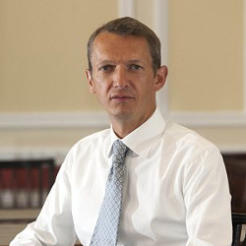Previous estimates saying volunteering could be worth more than £50bn a year could well be too low, Andy Haldane, the chief economist of the Bank of England, said yesterday.
Haldane (pictured) was speaking at the launch of Reach’s new digital volunteering service in London last night, where he said that the value and importance of volunteering was undervalued because it was not reflected in official statistics.
He said that the number of people who volunteer in the United Kingdom is “often underestimated” and referred to a speech he gave last year to the Society of Business Economists in London, which said that volunteering as a whole is worth “in excess of £50bn”.
He said he believed these figures were likely to be too low.
“The UK’s army of volunteers is huge but the value of volunteering is often underestimated," he said. "Policymakers, focused on official statistics like GDP, will miss it entirely. If we were to value just the hours donated the UK voluntary sector would be worth in excess of £50bn.
“But even this could be an underestimate and the total value of volunteering to society is likely to be larger still. Although few charities have the opportunity to undertake cost-benefit analyses, those that have suggest the wider benefits of their work are many times their total costs.”
Haldane said that policies such as the government’s proposed three days paid volunteering leave and the National Citizenship Service were good ideas, but that more needed to be done to “nudge” people into volunteering.
“Given the enormous social value of volunteering how can we get even more people volunteering?" he said. "One way is to reduce frictions in the matching process between volunteers and socially worthwhile activities.
“Employers also have a role to play, possibly by allowing flexible working hours, or a certain amount of paid volunteer leave. There may even be a role for the state in ‘nudging’ people into volunteering in the first place; once volunteering is a habit, it can last a lifetime.”
Reach volunteering
Reach, a registered charity that seeks to provide no or low-cost access to skills for resource poor charities, invited Haldane to speak as part of the launch of its new online volunteering service.
In the last five years, over 4,000 skilled volunteers have been placed with small charities at a value of over £7m.









